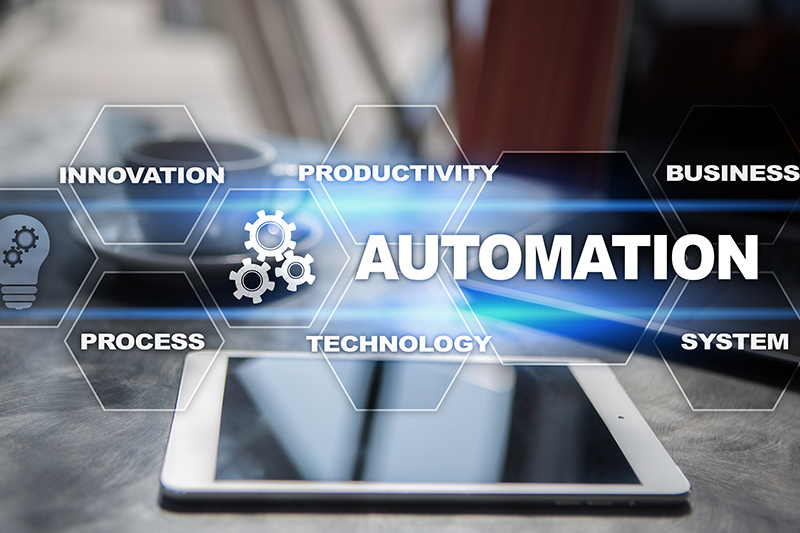Artificial Intelligence (AI) and Robotic Process Automation (RPA) are advanced transformative technologies that are impacting every walk of life. Encyclopedia Britannica defines AI as the ability of a digital computer or computer-controlled robot to perform tasks commonly associated with intelligent human beings. Robotic Process Automation (RPA) refers to the use of specialized computer programs or robots to standardize and automate business processes that are structured and repetitive. Combining AI and RPA can drive productivity, efficiency, and customer satisfaction to the next level. The future will see leading data conversion companies building these advanced technologies into their processes to solve complex content structure and data transformation challenges.
What is Artificial Intelligence (AI)?
AI already is enhancing human capabilities in many significant ways. It being deployed in many sectors such as accounting and finance, healthcare, education, IT, food technology, marketing and sales, research and development, logistics and transportation, human resources, real estate, building maintenance, criminal justice, national security, travel, customer experience, and more.
AI can easily carry out complex processes that are usually handled only by humans. AI algorithms analyze real-time data from variety of different sources. The data could be in the form of digital information, satellite imagery, visual information, text, or semi-structured unstructured data. AI can analyze this data instantly and use the information to make decisions, streamline programs and procedures, automate routine tasks, and improve the customer service experience.
Speech recognition, chatbots, image recognition, natural language generation, sentiment analysis and machine vision are popular AI applications. AI’s capabilities include:
- Comprehending documents
- Understanding conversations
- Envisaging screens
- Identifying tasks and processes to automate
- Language processing
Example: AI in banking – The financial sector is leveraging the power of AI in many ways. With more and more customers moving to digital channels, AI allows banks to provide an individualized, customized and segmented experience. AI-powered chatbots and personal assistants are providing hassle-free, 24/7 customer interactions and services in real-time supported by predictive analysis and machine learning capabilities. AI is also used for customer mapping and to study lifestyle needs such as housing loans, car loans, study loans, and credit cards, allowing banks to provide timely and customized services. AI also helps in fraud detection, customer acquisition and retention, and predictive analysis to forecast future trends.
A McKinsey study estimated that AI has the potential to unlock $1 trillion of incremental value for banks, annually. Benefits of the Ai-bank include reduced costs through higher automation, lower errors rates, improved resource utilization, and ability to uncover new opportunities.
What is Robotic Process Automation (RPA)?
Many businesses rely on data entry outsourcing for capturing or inputting data. Robotic process automation (RPA) or software robotics uses software technologies to simulate such back-office tasks performed human workers. RPA tools deploy software robots to perform repetitive IT processes and digital business functions at high-volume such as
- Data entry
- Filling in forms
- Scheduling client appointments
- Employee onboarding
- Updating information
- Time sheet submission
- File transfers
- Generating and distributing reports
- Approval processes
- Processing credit card applications
- Responding to simple and repetitive support queries
- Automating order processing and payments
- Monitoring inventory levels
- Processing transactions
- Tracking shipments, and more
By automating day-to-day business functions that otherwise require manual intervention, RPA streamlines processes, maximizes efficiency, improves accuracy, enhances employee morale, increases compliance, and promotes smooth operations and cost efficiencies. Importantly, RPA allows humans to focus on tasks that require judgement, creativity and interpersonal skills instead of routine manual work.
Example: RPA in Retail: Retail has several labour-intensive activities such as inventory management, invoice and order processing, and customer queries that are ideal areas for automation. As companies adapt to e-commerce trends, RPA can improve speed, accuracy and productivity in a variety of areas including new product launches, inventory management in multiple locations, sales analytics, store-specific planning, and order and returns processing. With RPA, retail businesses can ensure faster turnaround, avoid delays, improve customer satisfaction, and maximize sales opportunities.
Combining AI and RPA for the Maximum Benefit
The difference is clear: while RPA bots automate and speed up mundane, repetitive and rule-based tasks that do not require human judgement, intelligent AI robots learn from experience and apply reason and logic to solve problems by leveraging Machine Learning (ML), Deep Learning and Neuro-Linguistic Programming (NLP).
The fact is that AI and RPA are complementary technologies. Combining them can drive enterprise transformation by automating more processes, improving productivity and efficiency, reducing costs and enhancing the customer experience.
Document scanning companies convert paper documents, drawings, photos and other records into electronic format. This is the first step in business process automation. Data in electronic documents can be easily mined and analyzed by AI algorithms for automation of complex business processes. Technologically advanced data entry outsourcing companies are utilizing RPA to limit repetitive tasks, boost compliance, and scale to meet growing customer demands. The services provided by business process outsourcing firms are critical in preparing businesses for key technology trends.




